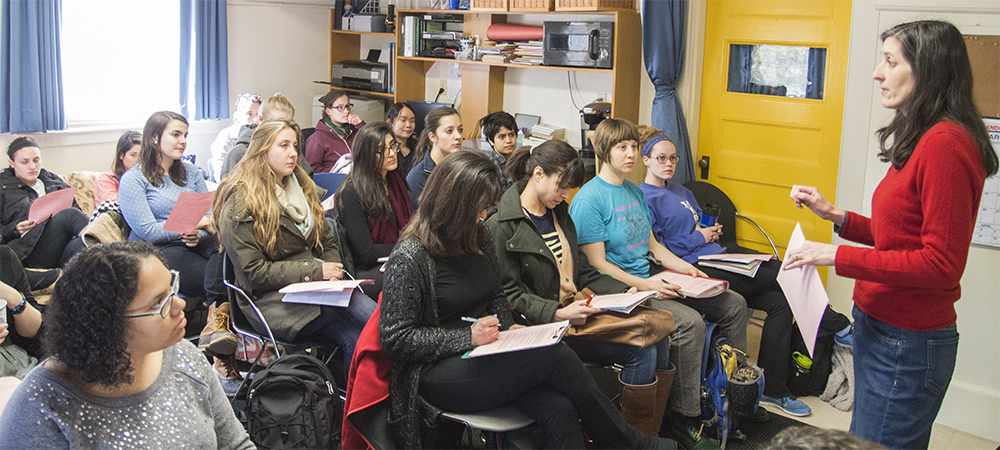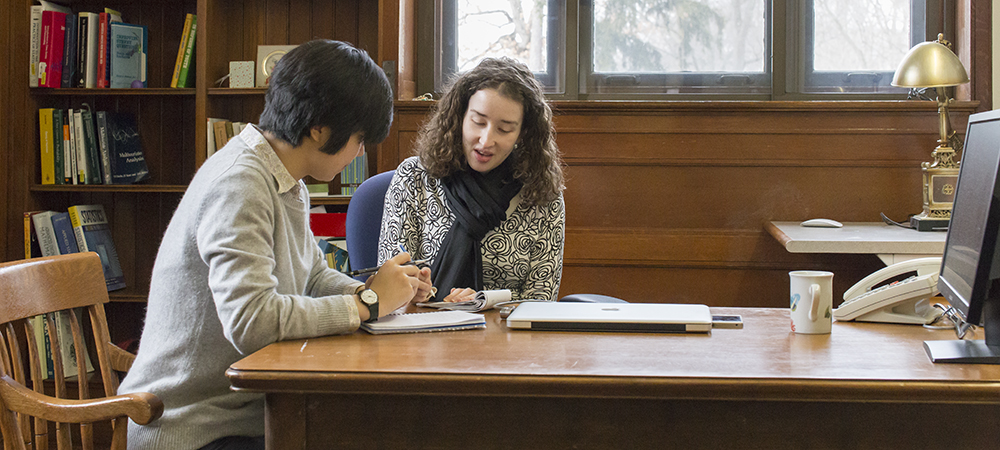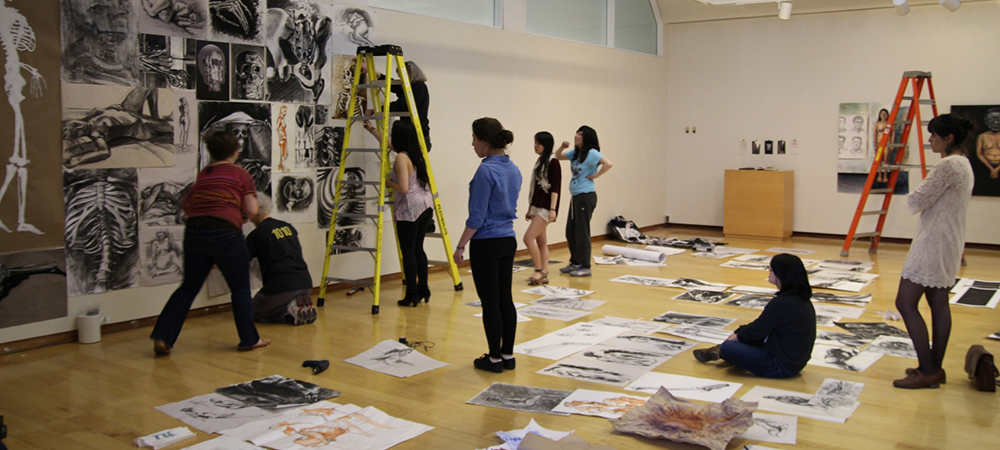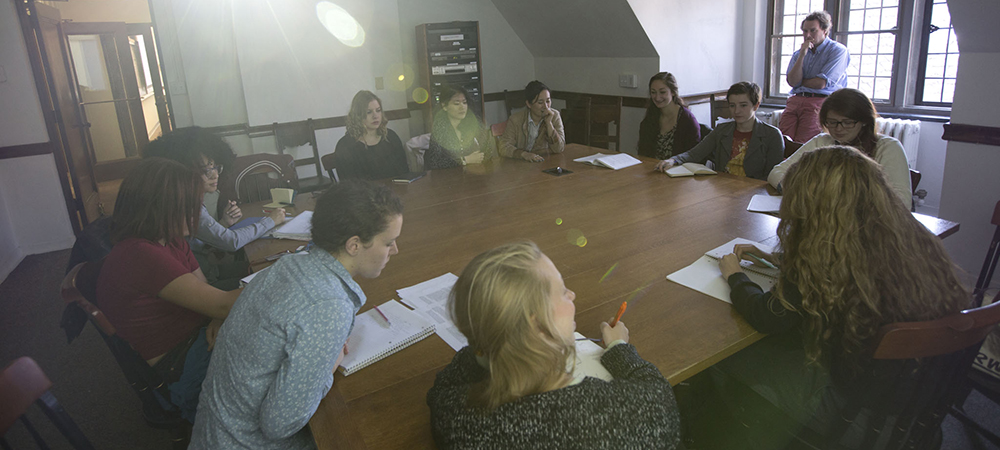Long-respected as the foundation of a fully rounded undergraduate education, the liberal arts remain essential to the 21st-century world.
Without an immediately obvious vocational outcome, study of the liberal arts sometimes comes under attack for being impractical. Wellesley is at the forefront of addressing this challenge, not by abandoning its belief in a liberal arts curriculum, but by working to ensure that students themselves understand—in the course of every learning challenge—that the disciplined thinking, refined judgment, creative synthesis, and collaborative dynamic that are hallmarks of their Wellesley education are not only crucial to developing their leadership abilities, but are habits of mind that will serve them well throughout their lives, and be primary contributors to their success.
Liberal Arts Ideals Become Real-World Skills
We back our commitment to students’ lifelong success by continuously making connections between students’ studies and highly valued real-world skills. Full engagement in the life of the College—and in the work she is doing there—is demanded of every student, and the sense of purposeful involvement, personal commitment, and ongoing responsibility that accrue from this translate precisely into qualities sought “on the outside,” regardless of setting.
Mastery of a broad range of intellectual and cultural content lends crucial perspective to any decision-making. Wellesley cultivates an avid curiosity and the willingness to interrogate closely, argue cogently, and judge fairly; as well as an awareness that allows the drawing of ethical lines clearly, cleanly, and publicly.
Finally, we bring to the liberal arts tradition two sets of skills that foster future success: effective communication and deft management of “human systems.” Clear speaking and writing comes with the organized thinking required to persuasively represent and defend a point of view. Wellesley women are known for a particular kind of leadership genius: They establish a vision, and serve the ultimate goal by creating consensus and modeling collaboration, negotiating intra-group interests with a sure touch, anticipating sticking points and navigating through them. In short, they have an ability to “get stuff done.”
All these skills—rooted in the power of the liberal arts disciplines—are the rewards of a Wellesley education.




